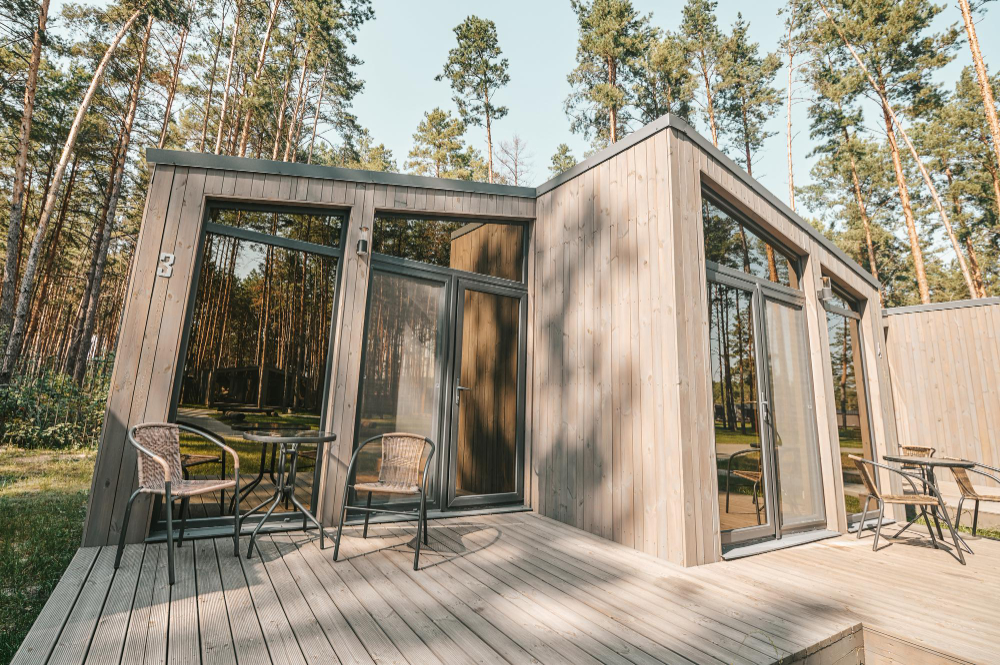
Unoccupied Home Insurance: All You Need to Know to Get the Right Cover
Owning property comes with big responsibilities, but one often overlooked risk is what happens when you leave your property unoccupied. Whether you have an empty house due to travel, renovations, or inheritance, you face risks that a standard home insurance policy simply does not cover.
This article explains unoccupied building insurance, why you may need unoccupied home insurance, and how it can keep your home protected.
What is unoccupied home insurance?
Unoccupied home insurance is a specialist policy designed to protect homes left empty for an extended period, typically more than 30 consecutive days.
Most standard home insurance policies assume the property is your main residence and regularly occupied. Once a property is left vacant, many insurers will reduce cover to basic risks such as fire and lightning or may exclude cover altogether. This means risks like theft, vandalism, water damage, or escape of water may no longer be covered, as the property is considered higher risk when unoccupied.
Unoccupied home insurance fills these gaps. It ensures your property remains protected during periods of vacancy, whether due to probate, renovation, sale, travel, or long-term absence.
Importance of specialised insurance for unoccupied properties in the UK
In the UK, thousands of homes are empty at any given time, but owners may not realise their standard home insurance policy will not cover things like criminal damage or escape of water if the property is vacant for too long. Without the right policy, you risk invalidating your insurance and facing high repair costs.
Specialist policies are designed to provide cover for properties unoccupied over an extended period, keeping the home secure, the cover valid, and your financial investment safe.
Overview of common scenarios requiring unoccupied home insurance

You may need unoccupied property insurance if:
- You are renovating or selling an empty house.
- You are handling a probate property awaiting legal resolution.
- You are in long-term care, travelling, or working abroad.
- You own a holiday home left empty during the off-season.
- You are a landlord between tenants, though some cases require landlord-specific unoccupied insurance.
Without proper cover, you risk invalidating your policy and losing any claims bonus you have built up.
When is unoccupied house insurance needed?
Most insurers define a property as unoccupied after 30 consecutive days, though some allow up to 60 days before reducing or removing cover. Always check your policy terms, as extended vacancies may require specialist unoccupied home insurance to keep your cover valid.
What types of properties does unoccupied property insurance cover?
.jpg)
Unoccupied home insurance applies to:
- Residential homes, whether your main residence or second homes
- Holiday homes
- Probate properties
- Properties undergoing renovation or sale
It can also cover commercial property, but this typically requires a separate vacant commercial property insurance policy, which is underwritten differently from residential cover and tailored to the risks of business premises.
Why is unoccupied home insurance important?
Increased risks associated with unoccupied buildings
- Theft and vandalism: An empty house is more vulnerable to burglary, attempted theft, or attracts unwanted attention.
- Natural disasters: Storms, floods, or high winds can cause damage that goes unnoticed, leading to bigger problems.
- Undetected maintenance issues: A small leak can escalate into a major claim if it is not spotted for weeks.
UK specific considerations
UK weather and legal responsibilities mean property owners remain liable even when a home is unoccupied. Property owners’ liability insurance protects you if someone is injured or their belongings are damaged on your premises.
This duty of care is set out in UK law, including the Occupiers’ Liability Act 1984 and the Defective Premises Act 1972, which hold owners accountable for harm caused by unsafe conditions, even if no one is living there.
Without specialist unoccupied property insurance, your standard cover may be invalidated, leaving you exposed to legal and financial risk.
What does unoccupied home insurance cover?

Buildings cover
This provides cover for the property structure, including walls, roof, gates, drives, boundary walls, outbuildings, and permanent fixtures like kitchens and bathrooms.
It also includes rebuild cost considerations, such as surveyor and solicitor fees, ensuring you can fully restore the property if needed.
Contents cover (optional)
If you leave personal possessions or household goods inside the building, contents insurance cover protects them against theft, fire, or malicious damage. Be sure to check limits and full details, as some policies cap the amount covered.
Liability cover
Owners’ liability cover, usually £2 million or more, protects you against legal claims for injury or property damage. This public liability element is crucial if anyone visits the property, such as contractors or estate agents.
Additional cover options
You can often add:
- Fire, flood, storm, or escape of water or oil cover
- Malicious damage and theft cover, as an empty property is more vulnerable to burglary or vandalism
- Home emergency cover for urgent emergency repairs
- Family legal protection
These additional protections help limit damage and cover properties for a wide range of risks.
Note: Accidental death cover isn’t standard in unoccupied property insurance and is rarely relevant. When offered, it may be part of a legal expenses add-on, but it’s not typically needed for vacant homes.
Policy duration and flexibility
Policies are available for:
- Short-term (3 to 6 months), ideal for renovations or property sales
- Long-term (9 to 12 months), suited to holiday homes or probate cases
It is vital to notify your home insurer if the situation changes, such as an extended holiday or longer vacancy, to keep your cover valid.
A standard home insurance policy usually reduces cover after 30 days when the home is unoccupied.
Requirements and conditions for valid cover
To ensure you're covered by unoccupied home insurance, insurers usually require:
- Regular inspections: Often every 30 days, and some policies need more frequent checks in winter. Keep evidence, such as photos or logs, to avoid risking the invalidation of a future claim.
- Security measures: Approved locks, alarms, or CCTV are often required to keep the home secure.
- Seasonal restrictions: Some insurers will not cover escape of water claims in winter unless you keep the heating on or drain the system.
- Clear documentation: Always update the insurer about status changes and follow policy terms carefully to maintain coverage.
How much does unoccupied home insurance cost?
Factors influencing premiums
Unoccupied home insurance can range from around £230 to over £500 per year, depending on the property's risk profile and how long it will be left empty. Key factors influencing your premium include:
- Location, including local crime rates or natural disaster risk
- Rebuild value of the property
- Condition and age of the building
- Security features in place
- Duration of unoccupancy
- Type of property, whether main residence, holiday home, or commercial property
Comparison with standard home insurance
Specialist unoccupied home insurance is typically more expensive than standard home insurance, reflecting the increased risks. However, maintaining a good claims bonus can sometimes help lower premiums.
Common situations requiring unoccupied building insurance in the UK

- Renovation or sale: Homes under construction or waiting for buyers need protection.
- Probate properties: Properties left vacant during legal proceedings are highly exposed.
- Owners in long-term care or working abroad: Long absences leave properties vulnerable.
- Second homes or holiday homes: These often sit vacant for months during the off-season.
- Landlords between tenants: A landlord’s standard cover may lapse between leases, requiring landlord-specific unoccupied insurance.
Without proper cover, you risk invalidating your insurance and paying out of pocket for any claims.
How to choose the right unoccupied building insurance
Assessing your cover needs
Consider the type of property, how long it will be vacant, what personal possessions or valuables will remain inside, and whether you want extra features like emergency repairs or legal expenses cover.
Comparing specialist providers
Look for insurance providers with experience offering specialist unoccupied property insurance and flexible terms. For example, PolicyPowerhouse offers tailored solutions designed to provide cover for all kinds of vacant properties.
Understanding exclusions and conditions
Always review the full details of your policy, including what is excluded, inspection requirements, and security conditions.
Seeking independent advice
If you are unsure, consult an independent insurance broker. They can recommend the best specialist policy and help you avoid gaps in cover.
Opportunities to improve protection
- Legal and regulatory awareness – Stay informed about recent UK housing and insurance regulations.
- Preparation checklist – Before leaving a property unoccupied, ensure doors and windows are secured, alarms are activated, heating or water systems are managed properly, and inspection arrangements are made.
- Smart technology – Use smart home devices to monitor conditions, detect leaks, or deter break-ins. Some insurers offer discounts for these.
- Understand regional risks – If your property is in a flood-prone area or exposed to natural disasters, make sure your policy includes suitable cover.
Conclusion
Leaving a property unoccupied introduces risks that your standard home insurance policy probably doesn’t cover. Without specialist unoccupied home insurance, you risk invalidating your existing cover and paying for repairs or losses yourself.
A specialist unoccupied building insurance policy can keep your home protected, maintain your claims bonus, and give you peace of mind, whether you’re renovating, managing a probate property, or heading abroad.
rivr: cover for those with more to protect

rivr is a high-value, digital-first home insurance provider built around the needs of modern lifestyles. We offer tailored cover for primary residences, with a focus on clarity, speed, and simplicity.
If your property will be unoccupied for an extended period due to probate, renovation, or travel, we can help you to stay protected.
Get in touch with the team today to explore the right solution for your property.
Read more
Frequently asked questions
Premiums vary based on factors like property value, location, length of vacancy, and security measures. Generally, unoccupied building insurance costs more than standard home insurance due to the higher risks involved, but obtaining multiple quotes can help find competitive rates.
Insurers usually require properties to have adequate security such as locks on all doors and windows, alarm systems, and sometimes even external lighting and water systems to be drained. Regular inspections and maintenance checks are also commonly required to keep the policy valid.




.jpg)
